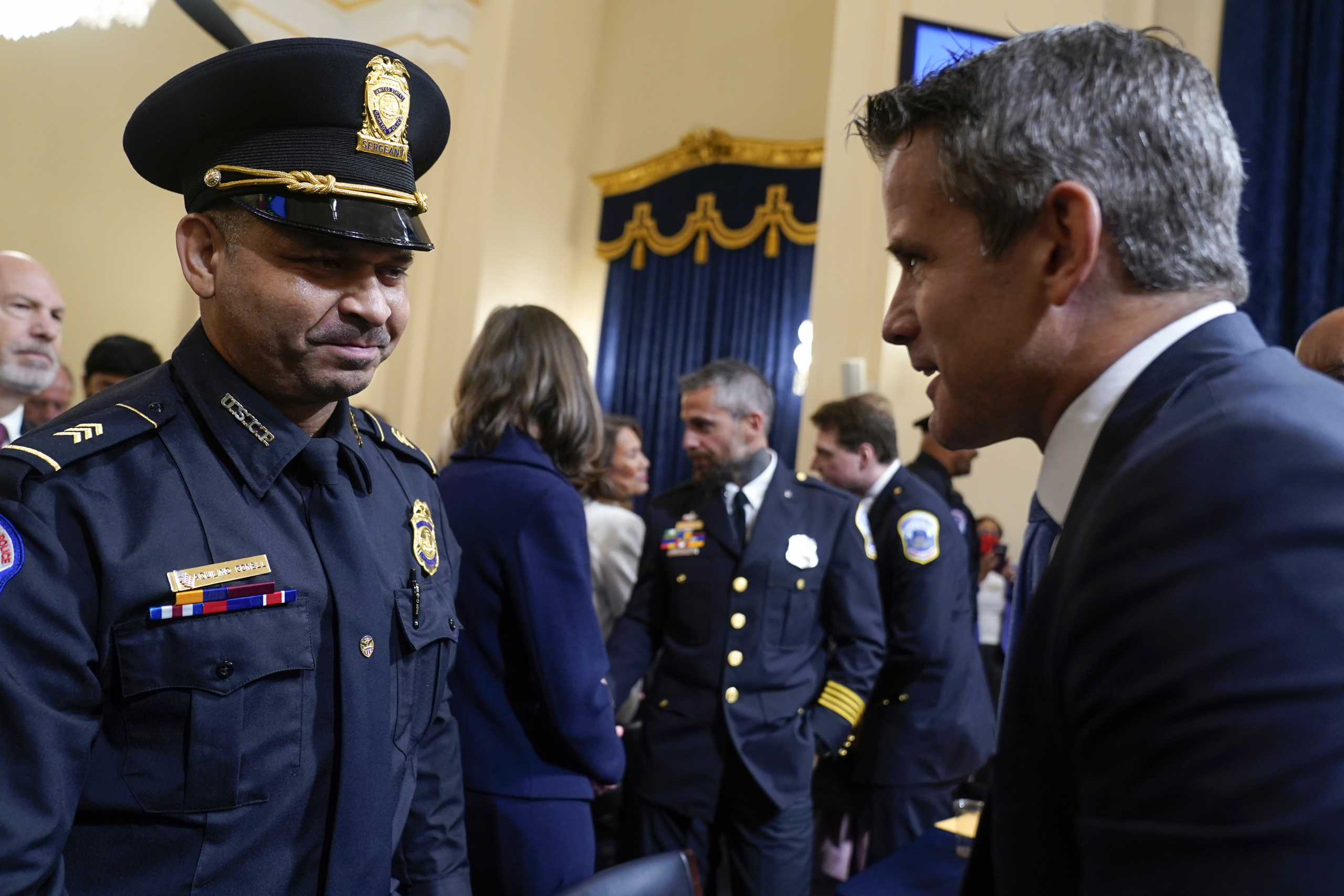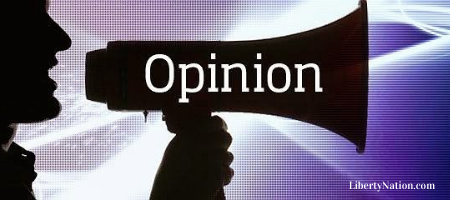The Democrat-led Select Committee on the events of January 6, 2020, is underway, and it seems yet another useful political distraction is being offered to America’s Fourth Estate – one the media appears happy to accept.
With the panel investigation predicted to last for many months, House Speaker Nancy Pelosi (D-CA) and willing journalists have a unique opportunity to direct the press agenda away from falling support for the president, rampant inflation, an unending border crisis, waves of violent crime on city streets, and flip-flops on COVID guidance. It is an opportunity that politicians and the left-leaning media are all too willing to grasp.

Rep. Adam Kinzinger (R-IL) (Photo by Andrew Harnik-Pool/Getty Images)
Tears and Terrorists
As one of two pre-selected GOP members on the panel, Rep. Adam Kinzinger (R-IL), who wept as he congratulated Capitol officers on holding the line, was a prominent face in the proceedings. He touted his conservative credentials and made an effort to dispel criticisms of the committee, saying:
“Some have concocted a counternarrative to discredit this process on the grounds that we didn’t launch a similar investigation into the urban riots and looting last summer. Mr. Chairman, I was called on to serve during the summer riots as an Air National Guardsman. I condemned those riots and destruction of property that resulted. But not once did I ever feel that the future of self-governance was threatened like I did on Jan. 6.”
When whole areas of major metropolitan cities are ceded to rioters with no federal or local authority access granted – as occurred in the instances he describes – many might question Mr. Kinzinger’s definition of self-governance.
The committee chairman, Rep. Bennie Thompson (D-MS), has said “nothing is off limits” in the inquiry. “If somebody spoke to the president on January 6, I think it would be important for our committee to know what was said. I can’t imagine you talk about anything else to the president on January 6,” Thompson stated, also suggesting that members of the Trump family could be issued subpoenas.
No Safe Spaces?
On June 15, the White House released a report that designated the Capitol riot as a “domestic terrorist attack” and sought private enterprise cooperation in purging “extremist” content from the internet. The report says “the Department of Justice is examining carefully what new authorities might be necessary and appropriate.” This description has continued and magnified with the current committee investigation.
The prevailing narrative, repeated often by both Capitol officers and committee members was that the people who rioted on January 6 were “terrorists.” It was a moniker applied at almost every opportunity and appeared to be a label that was agreed upon beforehand. This epithet was eagerly repeated and honed in on by a number of major publications worldwide.
Katie Benner, Justice Department reporter at The New York Times, appeared to agree with the panel’s use of terminology when she tweeted the January 6 committee:
“underscores the America’s [sic] current, essential natsec [national security] dilemma: Work to combat legitimate national security threats now entails calling a politician’s supporters enemies of the state.”
The tweet was later deleted and replaced with a mild mea culpa explaining that it was “unclearly worded.”
To suggest that more than 70 million American citizens – those who supported President Trump – are enemies of the state, and that internet surveillance and censorship of those with mainstream conservative views is the way to expiate the events of January 6, could be considered more of a danger to democracy than the riot itself.
Limiting Choices
 Glenn Greenwald, ousted founder of The Intercept, cut to the heart of the matter, saying that “Hearing anyone describe a traumatic and violent experience provoke[s] emotions: even for police officers. That’s what today is for. But the fixation on 1/6 is about exactly this: classifying Trump supporters as Enemies of the State for political gain & Security State power.”
Glenn Greenwald, ousted founder of The Intercept, cut to the heart of the matter, saying that “Hearing anyone describe a traumatic and violent experience provoke[s] emotions: even for police officers. That’s what today is for. But the fixation on 1/6 is about exactly this: classifying Trump supporters as Enemies of the State for political gain & Security State power.”
Could the whole endeavor be about limiting Donald Trump’s political influence? A CNN analysis piece describes the work of the committee as serving as “a real-time counterpoint as pro-Donald Trump Republicans whitewash history to excuse their demagogic leader.”
On day one, the media reacted breathlessly to the emotional testimony of Capitol officers; as the probe continues, how much of the blame will be laid at the feet of former President Trump? The Fourth Estate coverage appears designed to elicit sympathy and to stir anger at the instigators, and it is all but certain the committee’s conclusion will name Donald Trump as the man responsible.
Like a poorly written theater production, just about every member of the public knows the anticlimactic finale before the first act has ended. One wonders how the political actors can play their parts with such gusto.
~
Read more from Mark Angelides.



